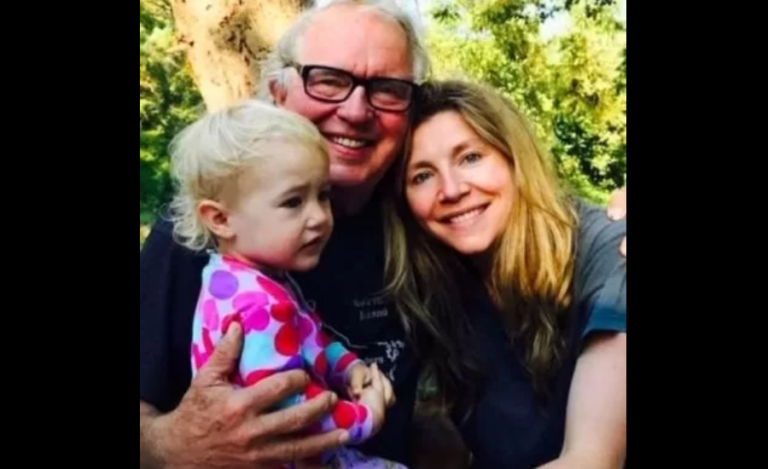The Role of Comprehensive Care in Treating Addiction
The Role of Comprehensive Care in Treating Addiction
Addiction is a complex and deeply personal struggle that affects millions of individuals and their families. At Heal Behavioral Health, we understand that addressing addiction requires more than just detoxification or short-term treatment. It demands a holistic and comprehensive approach that nurtures every aspect of a person’s well-being—physical, emotional, mental, and social.
Understanding Comprehensive Care
Comprehensive care is a treatment philosophy that integrates multiple modalities to address the diverse needs of individuals battling addiction. Instead of focusing solely on the symptoms of substance abuse, this approach aims to identify and treat the root causes, co-occurring disorders, and social factors that contribute to addiction.
At Heal Behavioral Health, comprehensive care includes personalized therapy, medical interventions, family involvement, and aftercare planning. By offering a wide range of services, we ensure that every individual receives the tailored support they need to recover and thrive.
The Core Components of Comprehensive Care
1. Personalized Treatment Plans
Every person’s journey through addiction and recovery is unique. Personalized treatment plans take into account the individual’s history, specific substance use issues, mental health conditions, and personal goals. At Heal Behavioral Health, our team conducts thorough assessments to design a roadmap that best suits each client’s needs.
2. Integrated Mental Health Support
Many individuals struggling with addiction also face co-occurring mental health disorders such as anxiety, depression, or PTSD. Addressing these issues concurrently is crucial for sustainable recovery. Comprehensive care at Heal Behavioral Health includes dual diagnosis treatment, which ensures that both addiction and mental health challenges are treated simultaneously.
3. Medical Detox and Support
For individuals with severe substance dependencies, medical detoxification is often the first step. This process helps manage withdrawal symptoms and ensures safety under the supervision of healthcare professionals. Our medical team at Heal Behavioral Health provides compassionate care during this critical phase, preparing clients for the next stages of recovery.
4. Therapeutic Interventions
Therapy is a cornerstone of addiction treatment. Evidence-based approaches such as Cognitive Behavioral Therapy (CBT), Dialectical Behavior Therapy (DBT), and trauma-focused therapies are essential in helping individuals understand their triggers, develop coping mechanisms, and rebuild their lives. Group therapy and peer support also foster a sense of community and shared healing.
5. Family Involvement
Addiction doesn’t just affect the individual; it impacts families as well. Family therapy and education are integral to comprehensive care. At Heal Behavioral Health, we help families rebuild trust, improve communication, and create a supportive environment that encourages recovery.
6. Holistic Therapies
Incorporating holistic practices such as mindfulness, yoga, meditation, and art therapy enhances emotional resilience and overall well-being, particularly in a luxury rehab facilities, where these therapies complement traditional methods, empowering clients to reconnect with themselves in meaningful ways.
7. Aftercare and Relapse Prevention
Recovery is a lifelong process, and the transition from treatment back to everyday life can be challenging. Comprehensive care emphasizes robust aftercare planning, including ongoing therapy, support groups, and access to resources that help clients maintain sobriety.
The Benefits of Comprehensive Care in Addiction Treatment
Addressing Underlying Issues
One of the greatest strengths of comprehensive care is its ability to uncover and address the underlying causes of addiction. Whether it’s unresolved trauma, genetic predisposition, or social pressures, tackling these factors is key to long-term recovery.
Promoting Holistic Healing
Addiction takes a toll on every aspect of a person’s life. Comprehensive care fosters holistic healing and helps individuals regain a sense of purpose and balance by addressing physical health, mental well-being, and social connections.
Reducing the Risk of Relapse
Relapse prevention is a fundamental goal of comprehensive care. Through education, coping strategies, and continuous support, clients are better equipped to navigate life’s challenges without turning to substances.
Strengthening Support Systems
A strong support system is vital for recovery. Comprehensive care involves families, friends, and peer networks to create a safety net of encouragement and accountability.
Why Heal Behavioral Health?
At Heal Behavioral Health, we are committed to providing the highest standard of care for individuals seeking recovery from addiction. Our comprehensive approach ensures that no aspect of a client’s needs goes unmet. From the initial assessment to aftercare, we stand by our clients every step of the way.
Our team of experienced professionals combines clinical expertise with genuine compassion, creating a safe and nurturing environment for healing. By choosing Heal Behavioral Health, clients gain access to a wide range of services, cutting-edge therapies, and a community dedicated to their success.
Conclusion
Comprehensive care is the gold standard for addiction treatment because it addresses the multifaceted nature of this disease. At Heal Behavioral Health, we believe in empowering individuals to reclaim their lives by offering personalized, integrated, and holistic solutions. Recovery is not just about overcoming addiction; it’s about rediscovering joy, building meaningful relationships, and achieving lasting wellness.
If you or a loved one is struggling with addiction, don’t hesitate to reach out to Heal Behavioral Health. Together, we can navigate recovery and create a brighter future.
FAQs
What is comprehensive care in addiction treatment?
Comprehensive care is a holistic approach that integrates medical, therapeutic, and supportive services to address the diverse needs of individuals struggling with addiction. It aims to treat the whole person rather than just the symptoms of substance abuse.
Why is dual diagnosis treatment important?
Dual diagnosis treatment is crucial because many individuals with addiction also have co-occurring mental health disorders. Treating both conditions simultaneously improves the chances of sustained recovery and overall well-being.
Does comprehensive care include family involvement?
Yes, family involvement is a key component of comprehensive care. It helps rebuild trust, improve communication, and create a supportive home environment that fosters recovery.
What role do holistic therapies play in addiction treatment?
Holistic therapies, such as mindfulness, yoga, and art therapy, complement traditional treatments by enhancing emotional resilience, reducing stress, and promoting overall well-being.
How can I get started with Heal Behavioral Health?
You can begin your journey to recovery by contacting Heal Behavioral Health. Our team will guide you through the process, starting with a thorough assessment and creating a personalized treatment plan tailored to your needs.
Keep following us for more news and alerts: Ancient Artz






